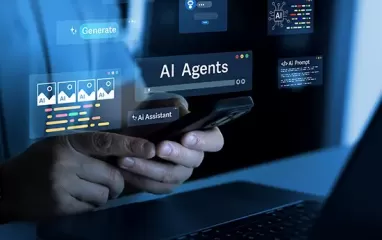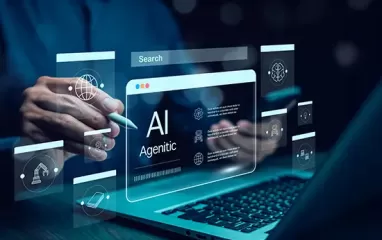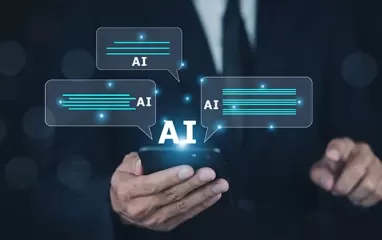Other recent blogs



Let's talk
Reach out, we'd love to hear from you!
It is imperative for business executives to make sound business decisions. Effective decisions guide organizations toward a safer and better future and help generate better business outcomes.
Unfortunately, a McKinsey Global Survey says that only 20 percent of its respondents believe their organizations excel at decision-making.
Clearly, there’s a massive gap, and if left unattended, it can badly affect your business's future. The need is to look within, identify the gaps and limitations, and embark on a journey—a continuous one—to get better at making decisions that can drive your business forward.
Generative AI, or GenAI, is a breakthrough innovation you can safely bet on.
Generative AI is a branch of Artificial Intelligence with deep learning models at its core. Built with the help of massive amounts of data, GenAI systems can help decision-makers across every organizational layer to glean insights from the data and use those insights to drive decision-making across the organization. Furthermore, GenAI can potentially transform how technical projects are conceptualized and executed. But before we delve into its transformative impact, let’s first explore the fundamentals of GenAI.
What is Generative AI (GenAI)?
GenAI is an acronym for Generative Artificial Intelligence. It’s a critical, and arguably the most popular, part of artificial intelligence at this moment.
GenAI builds on complex algorithms and neural networks to generate diverse forms of content from existing data. Developers or business users are only required to give suitable prompts and the AI content generator will produce as little or as much content as required.
GenAI models are trained to look out unique patterns and features from input data and are able to create data or content that has similar characteristics. Take ChatGPT for instance; it’s a chatbot that has been trained on massive amounts of text data to understand human language patterns and structures.
GenAI tools can be used to produce a range of content formats such as text, images, code, videos, art, music, etc. These tools or systems are developed with the help of underlying AI models, such as a large language model (LLM). In fact, LLMs are the text-generating part of generative AI tools.
GenAI has practical uses, including, but not limited to:
- Generating impactful content
- Responding to criticism to improve writing
- Outlining resumes, term papers, and more
- Receiving a generic code to edit or improve upon
- Summarizing articles, emails, and reports
- Improving demonstration or explanation videos
- Creating music in a specific tone or style
How GenAI helps with technical projects?

When you embed GenAI systems and solutions to streamline and accelerate technical projects, they prove equally valuable.
- Faster and more meaningful innovation: GenAI systems and solutions can help generate innovative solutions and designs that might not be immediately apparent to human teams. This can drive breakthroughs in product development, system optimization, and creative content generation.
- Effective decision-making: By simulating multiple scenarios and outcomes, Generative AI aids decision makers in evaluating various strategies and their potential impacts, leading to more informed and confident decisions.
- Improved efficiency and cost control: Automating repetitive and time-consuming tasks with Generative AI reduces the need for extensive manual labor, saving time and lowering operational costs. For instance, AI-driven design tools can expedite the product development cycle.
- Helps deliver personalized experiences: Generative AI apps and systems can help teams develop highly personalized solutions and experiences at scale, which is particularly valuable in customer-centric industries such as retail, healthcare, and entertainment.
Key Applications of GenAI in Technical Project Execution
To stay ahead of the competition, forward-looking IT and business leaders rely on accurate and real-time information. They trust their gut instincts. But they also do not forget to value the potential of harnessing the insights generated by their customer and business data. And this is where Generative AI technology comes in.
With Generative AI technology, they can push boundaries of what’s possible and generate data on demand and capture insights that were not available before.
Here’s some of the ways the C-suite and middle management can refine their decision-making processes with Generative AI:
- Product design and development: Generative AI (GenAI) can help product teams accelerate the ideation and concept generation phases of product development, and can also help them create designs that are more flexible and adaptable to changing user needs. Integrating GenAI into this phase, thus, paves the way for faster time-to-market and development of more innovative products and services.
- Software development: Generative AI companions, such as ChatGPT and Copilot, are designed to improve developer productivity and experience. Software development teams can tap into GenAI apps and services to streamline, accelerate, and secure their entire web and mobile app development landscape, from design and development to quality assurance and maintenance.
- Infrastructure and system optimization: GenAI can be used to optimize complex systems and infrastructure by simulating various configurations and identifying the most efficient solutions. In network design, AI can propose optimal layouts to minimize latency and maximize coverage.
- Content generation: Executives can use GenAI technologies to generate reports, summaries, and commentaries on complex data sets. In this way, they can significantly save on their time and effort previously spent on data analysis, allowing them to focus on strategic planning and decision-making.
- Healthcare and drug discovery: In healthcare, Generative AI accelerates drug discovery by predicting molecular structures and potential compounds. AI models can also generate personalized treatment plans and assist in medical imaging analysis, improving patient outcomes and reducing research timelines.
In addition to these advantages, embedding GenAI intelligence into the tech stack can yield a range of other benefits such as:
- Reduced bias: Long before AI was invented, the wise men said that ‘To err is human.’ This is true even today. As humans, no matter how capable or talented we are, sometimes, or a lot of times, we make decisions based on our preconceived notions or what we believe to be true. GenAI helps as an outsider and helps speak the language of data and statistics. With reduced bias, decisions are likely to be fairer and better for the health of the business and people operating it. However, we must not forget that the outcome from these GenAI solutions often come from the quality and consistency of data they are fed. So, companies must invest in building a robust and scalable data ecosystem.
- Risk mitigation: Decision makers are not only responsible for enabling the organization to generate revenues, but also ensure they have more visibility into the future for opportunities as well as potential threats. GenAI helps leaders in identifying risks that can derail the growth of a business or hurt its growth plans; the early identification of these risk factors enable leaders to build solid plans to address these challenges if they happen.
- Supply chain optimization: GenAI can be harnessed to manage and optimize every aspect of supply chain management. It can help with demand forecasting, inventory management, sustainability and green logistics and promote real-time visibility and collaboration.
- Enhanced customer services: Sales and marketing teams can deploy AI-powered chatbots and virtual assistants to provide round-the-clock service to the customers through their websites and apps, and thus pave the way for increased customer engagement and service experience.
- Innovation and creativity: Leaders and teams can use GenAI tools to generate novel ideas, designs, or solutions by mimicking human creativity. Enabling teams with GenAI solutions can help build a more innovation and creativity-driven environment within the organization and enable decision-makers to explore new opportunities or solve complex problems.
Implementation strategies for decision-makers
- Internal assessment: To integrate GenAI systems and solutions deep within the organization, it is vital to conduct a comprehensive internal assessment of how ready or prepared your organization is for GenAI. Examine your IT landscape, data architecture, technical expertise, and identify the best ways you can introduce GenAI to your organization.
- Invest in talent and training: You can improve the odds of your implementation success by educating your people, partners, and vendors on GenAI and how it stands to benefit each of them in their roles. To ensure a seamless transition toward GenAI, you can set up training programs or sessions for your teams at regular intervals so that they are prepared for the new tools and technologies.
- Start with pilot projects: Take small steps in the early stages. Do not commit too many resources. Pilot projects are often adequate to demonstrate clear value and feasibility. Based on the results from these small-scale projects, you can gradually spread GenAI across the organization.
- Ethical AI is the key to success: Artificial intelligence is a double edged sword. As the proponent of GenAI in your organization, you must ensure the technology is used the right way and there are clear instructions around the development and usage. Develop ethical guidelines for AI use. Check for the potential biases in the AI output and address them if you see any. Constantly iterate on the tools, the data they are fed, and the output generated by those machines or algorithms.
- Collaborate with AI-first organizations and vendors: To accelerate GenAI implementation, you can collaborate with an AI-first software development organization. Under their guidance, you will be able to navigate through the terrain of GenAI with much more confidence and clarity.
Generative AI: A game-changer in evolving markets
Forward-looking organizations are accelerating their investments in GenAI. Early adopters will likely unlock a stream of benefits that will help them secure a competitive edge and build more impactful products and services.
The key is to adopt this transformative technology early on in the processes and train the stakeholders to use it responsibly to drive decision-making and customer experience.
Missing out on GenAI or the modern digital technologies can put you at risk of losing your market share to your competitors.
Still on the fence about how GenAI can help drive your business growth?
Get to speak with a Kellton Expert!



